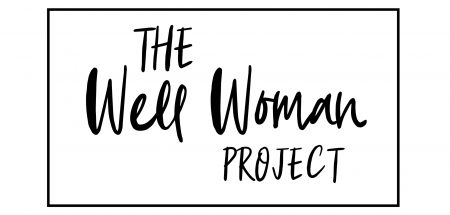Anxiety, Depression & Hormones
The influence of anxiety or depression on our hormonal health
Anxiety and depression aren’t just “in your head” – they have a profound impact on your body, especially your hormones.
The problem with pushing through
There is a VERY long history around the narrative that women are emotional. Hysterical, even. It was actually a diagnosis. Deemed something we couldn’t do anything about simply because we were women. I truly believe that that legacy lives on within us, and that this stigma that the patriarchy has gifted us is why it can be seen and felt like a weakness to admit when we are finding things hard. Instead, we feel we must push through and keep going, at all costs. Too often, pushing through like this is when anxiety and depression settle in and start causing havoc with our hormones.
Modern life gives us all a lot of balls to juggle and it is very human to find all this juggling to be a bit of a struggle. If you’re feeling overwhelmed by your day-to-day, it’s no wonder. And it’s ok (and necessary) to cut yourself some slack because when we battle on and push ourselves, we do ourselves no favours.
So, I invite you to pop that particular piece of patriarchal nonsense down and give yourself permission to say that this is all a bit hard and allow yourself to take a break. Put the balls down for fifteen minutes. They’ll still be there when you come to pick them up again.
Stress Hormones and the Domino Effect
Anxiety and depression often come with an unwelcome guest: Stress. When your mind perceives a threat, it signals your body to release stress hormones, including cortisol. While cortisol is a hero in short bursts, chronic stress can lead to overexposure. The high levels of cortisol, in turn, can mess with all your other hormones, knocking them out like a line of dominoes. This throws your entire hormonal balance off, affecting everything from your menstrual cycle to your mood.
In disrupting the finely choreographed dance of your hormones, the emotional strain of anxiety, depression and stress breaks the harmonious relationship between oestrogen and progesterone – the two hormones that play a significant role in your menstrual cycle. These imbalances can lead to intensified PMT symptoms, making those already challenging days feel even tougher.
It doesn’t stop there. Chronic anxiety and depression can impact your sleep patterns and appetite. These shifts can, in turn, affect the hormones that regulate your sleep-wake cycle and hunger cues, further exacerbating the imbalance. A vicious circle.
The Roadmap to Empowerment: Nurturing Holistic Health
So, what can you do to nurture both your emotional well-being and hormonal health? Here are a few steps to consider:
1. Prioritize Self-Care: Carve out time for activities that bring you joy and relaxation. Whether it’s reading, spending time in nature, or practicing mindfulness, self-care can help alleviate emotional strain. Looking after yourself isn’t the sentiment on a quote put up in your home. You really CANNOT pour from an empty pot. You need to look after you, it’s the only one we have, and the world needs you.
2. Reach Out: Don’t hesitate to seek support. Friends, family, or a mental health professional can provide a safe space to share your feelings. Therapy has been such a life saver for me over the years!
3. Balanced Nutrition: Opt for a balanced diet rich in nutrients. Certain foods, like omega-3 fatty acids found in fish, flax seed have been linked to improved mood. Be sure to grind your own flax seed though to get the goodies out of it. Pre milled is old and has lost its goodness.
4. Regular Exercise: Engage in regular physical activity, as it’s a powerful tool for managing anxiety and depression while also supporting hormonal balance. You don’t have to cain it either, a swim or walk is as good as spinning or HITT. You need to follow the lead of your body, sometimes you can start gentle and then build up to it.
5. Keep a note of it: Writing things down on your chart of your cycle like your mood and energy can really help you plot and notice where these dips might be happening. This helps you to put things in place to mitigate and help yourself before the funk sets in. If you feel very funky, please make sure to reach out and get the right support. PMDD (premenstrual dysphoric disorder) is something that can get overlooked all the time and it is much more than bad PMT.
Empowering Resources:
Charting
Charting our cycle and becoming aware of its patterns and our moods is always illuminating work. It’s easy to get started and I’ve put together some information to help you get going. Start Charting
My Book
Before we part ways, let me introduce you to a valuable resource – my book “Periods Aren’t Meant to Bloody Hurt.” It’s a comprehensive guide that delves into the complexities of women’s health, including the impact of emotional well-being on hormonal harmony. You can order it now (it’s released in November).
Remember, my lovely, you’re not alone in this journey. Your emotions and hormones are intertwined and nurturing one can positively influence the other. By nurturing holistic well-being, you’re paving the way for a more harmonious and empowered you. You got this and if you want to reach out for some help hit me up.
Sending you warmth and strength on this remarkable voyage.
Gemma








